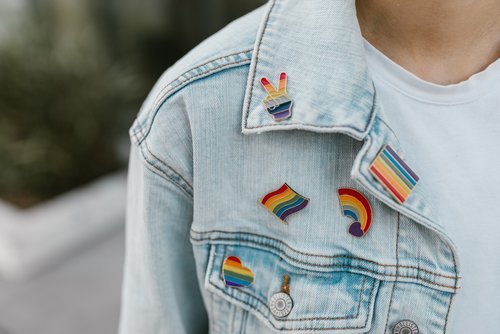
Educational Blogs from Our Mental Health Therapists
Learn about common challenges, including depression, anxiety, relationships,
trauma, and more, written by Maryland therapists!
Topic
- Anxiety
- Art in Therapy
- Biases
- Boundary Setting
- Brainspotting
- Burnout
- Business Owners
- COVID-19
- Careers
- Children & Teens
- Cognitive Behavioral Therapy (CBT)
- College Students
- Communication Skills
- DIY Crafts
- Depression
- Dialectical Behavior Therapy (DBT)
- Emotional Regulation
- Faith-Based
- First Responders
- Grief and Loss
- Highly-Sensitive Person
- International Clients
- Internships
- Ketamine-Assisted Psychotherapy
- LGBTQIA
- Men's Issues
- Mindfulness
- Motivation
- Neurodivergence
- Online Counseling
- Oppression
- Parenting
- Recovery
- Relationships
- Resources
- Sex Therapy
- Trauma and PTSD
- Women's Issues
- Workshop
Remaining Resilient Through Adversity as an LGBTQ+ Individual
With the current anti-LGBTQ+ rhetoric and legislation from our current administration, LGBTQ+ people are being faced with a slew of issues, such as barriers to obtaining gender-affirming IDs, free speech bans, healthcare restrictions, and the dismantling of Civil Rights Laws. This is why we build resilience: so we can bounce back from these challenges and stand stronger than before. Here are some ways to build up resilience and seek out hope in the face of despair.
When the World Feels Heavy: Finding Comfort and Showing Up as an Ally
With the inauguration last week, it’s important to check in with how we are feeling. It is often easier to ignore those feelings because facing them invites vulnerability, but when we take a moment to face the music, we realize the power we have in our voice.
Ways that Purity Culture Impacts Women, Sex and the LGBTQ+ Community
Like many Evangelical teens growing up in the 90s, I was told my body was a temple and that we were all born inherently evil. I was told to cover up and dress in modest clothing to protect the minds of boys and men and that marriage was solely meant for one man and one woman. We were the gatekeepers for boys and men in the church. If they started having impure thoughts about us, it was our fault. Throughout my research, I continue to see similar stories and lived experiences to my own. I see myself in all of the stories shared by women across the US and the world who were victims of purity culture.
How to Start Becoming a More Transgender Inclusive and Gender-Affirming Person
The out transgender and gender non-binary (TGNB) populations are among the fastest-growing populations in the United States. What this means is that you are likely to know someone who identifies as TGNB. They could be your neighbor, a family friend, they could even be your child. So now what? How do you treat them with dignity, respect, and worth as human beings? How do you learn to respect their individuality and be a supportive person in their life?
How to Start Becoming a More Transgender Inclusive and Gender-Affirming Therapist
According to the American Counseling Association (ACA) Code of Ethics, we are responsible to respect the dignity and promote the wellness of our clients. What does this mean for therapists when working with TGNB clients? This means that we must make it a priority to have at least a baseline understanding of what it means to be TGNB and an understanding of how we can support their well-being. As with most marginalized communities, the TGNB community is often discriminated against, mistreated, misunderstood, and faces psychological trauma as a result. In light of this, what can we do to be trans-inclusive and gender-affirming therapists?
LGBTQIA+ Resources Recommended by Maryland Area Counselors & Therapists
Pride month may be coming to a close, but we continue to encourage everyone to stay informed, connected, and spread resources to those close to them!
If you, or someone you know, is looking to learn more, or is in need of additional support or services, here are some local and national LGBTQIA+ resources we want to share with you!






